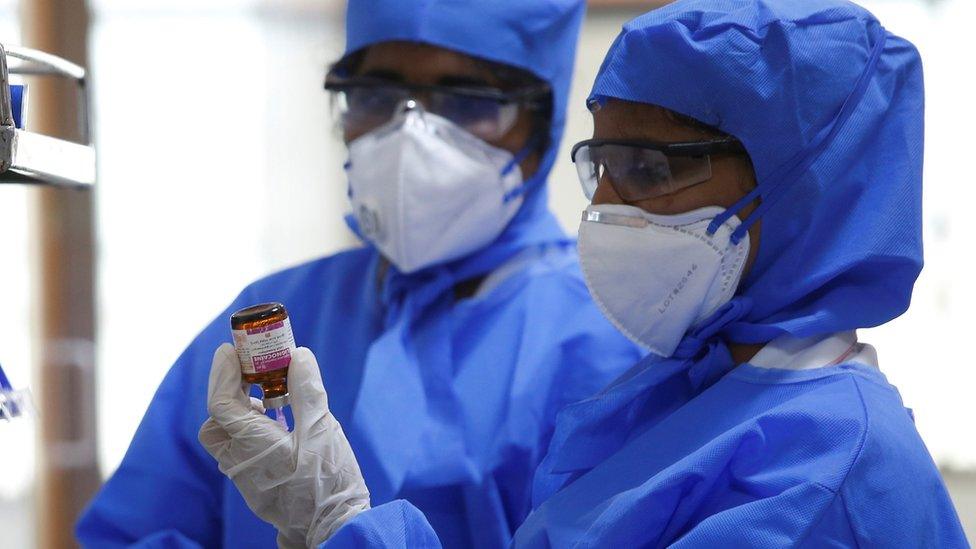Wuhan lockdown: How people are still getting food
- Published
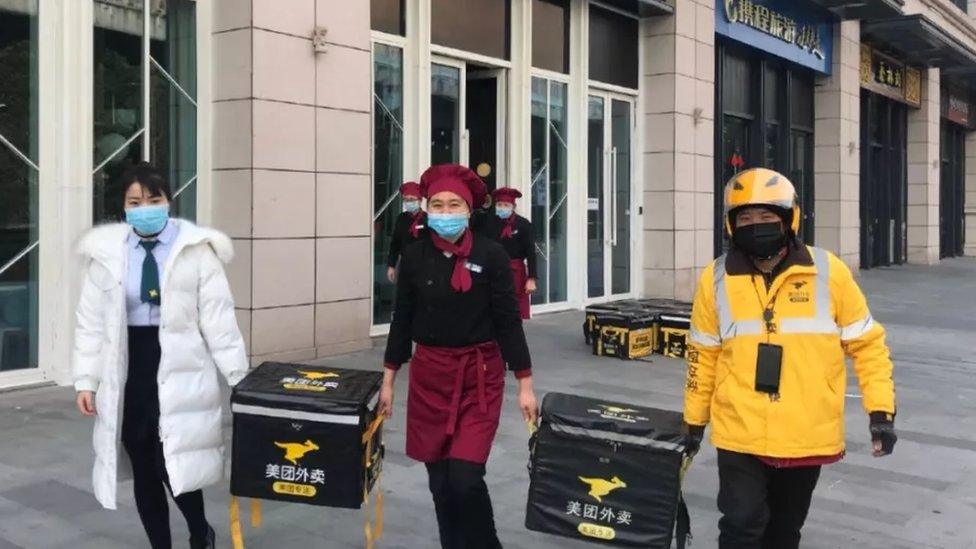
With coronavirus-hit Wuhan in lockdown, residents are faced with some basic challenges, such as how to find food.
The severe restrictions on the city's 11 million residents, designed to prevent the spread of the disease, mean even simple grocery shopping and eating out are no longer straightforward.
Chinese blogging site Weibo is abuzz with people complaining about problems getting food.
One Wuhan resident talked about the difficulties in buying certain vegetables, with prices of other foods "a little expensive".
Even getting food delivered comes with risks.
"I used to order delivery foods many times a week, but now it's much less, about four times a week, as we want to avoid direct contact with the delivery guy,'' said Xingxing Yin, a student from Wuhan.
But one Chinese meal delivery firm is adapting its technology to solve that challenge.
China's food courier market has grown rapidly in recent years and Meituan is now the biggest player with 440 million customers and 700,000 daily riders.
It is now using its vast network and its technology to help support Wuhan and the wider province of Hubei during the crisis.
Meituan, which is backed by Chinese internet giant Tencent, has adapted its food delivery app so riders and customers don't have to meet face-to-face.
The app has been updated to allow users to add a note to the delivery rider asking them to leave the food on their doorstep or at a building's reception area. Customers can also call or text the rider directly within the app to discuss a location to drop off the food.
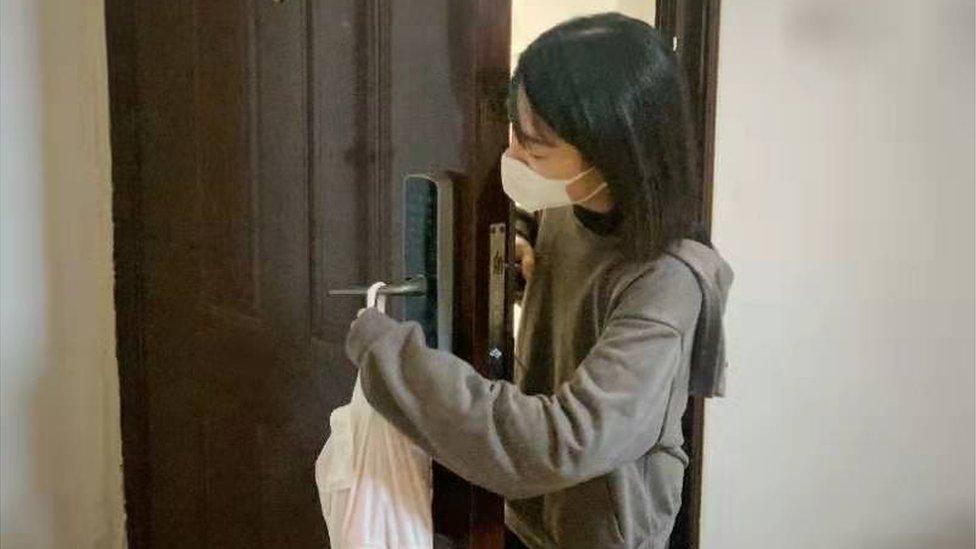
Some of Wuhan's residents are worried about coming into contact with delivery drivers
Meituan is also handing out 1,000 free meals every day to medical staff in Wuhan and delivering them fresh ingredients to cook with. Contactless lockers are being installed at hospitals around the city so food can be left securely by riders and unlocked by medical staff using a QR code.
During the past three days, Meituan has delivered around 5,000 free meals to medical staff in Wuhan.
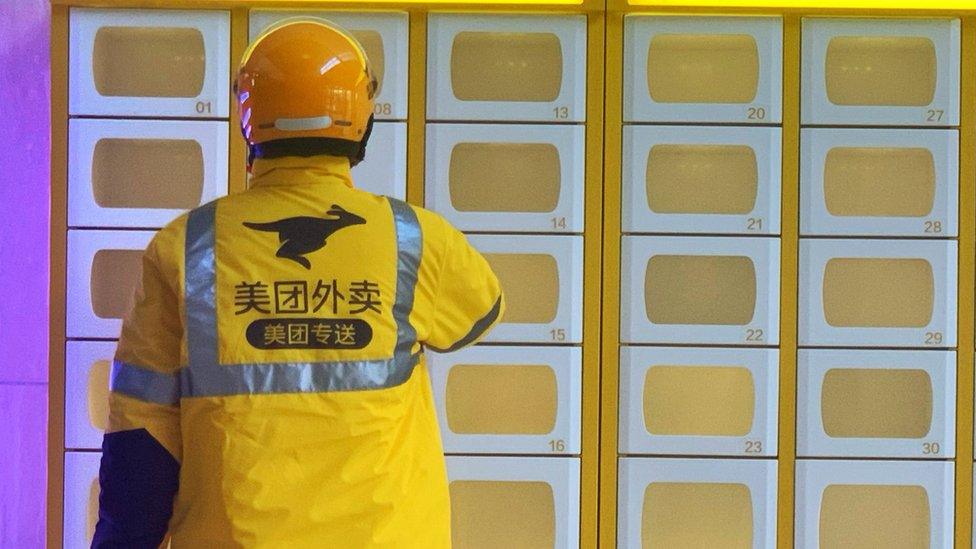
Meituan has installed lockers at hospitals to provide a secure place to leave food
More and more companies are asking staff to work from home, including Facebook, WeWork and banking group Morgan Stanley. Such measures are likely to prompt a rise in demand for food delivery apps like Meituan and Alibaba's Ele.me.
Meituan's new human contact-free app feature was first launched in Wuhan but is being rolled out nationwide and now covers 184 cities. Meituan says it ''expects the feature to be available across China by end of this week'.
For medical staff, the free food deliveries are a lifeline. They are under huge pressure to treat thousands of people suspected of contracting the deadly virus. A hospital is being built in six days in Wuhan to treat patients.
But staff don't have time to go and find fresh food in Wuhan, while working long hours to help patients.
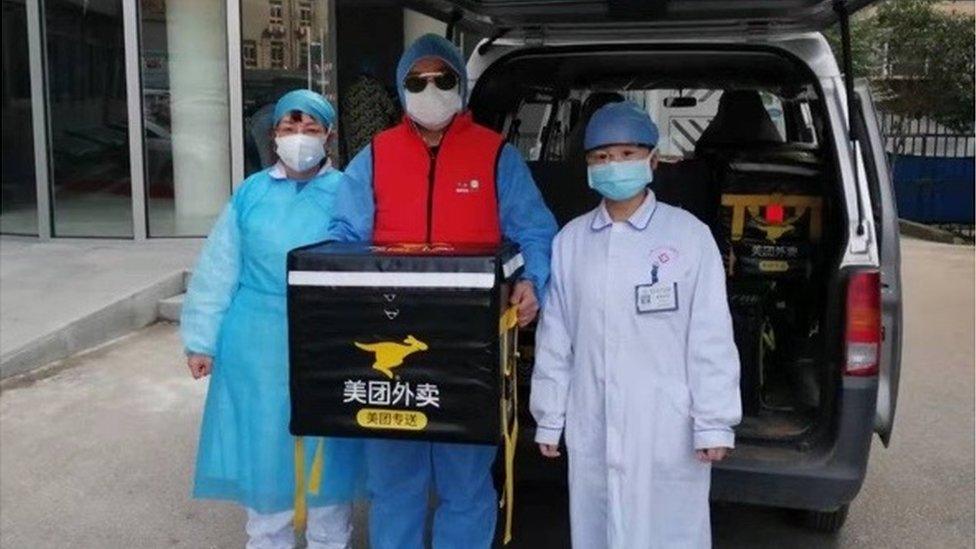
Medical staff take delivery of food in Wuhan
Meituan's business-to-business arm Kuailv Jinhuo, which normally delivers fresh food to restaurants, is now delivering produce to hospital staff.
''Under current conditions we think some medical institutions and CDCs (Centers for Disease Control and Prevention) might also have the need to buy the materials and cook for themselves,'' said Meituan spokesman Whitney Yan.
The food delivery giant has donated 200m yuan (£22m) to help with food supply for medical staff at Hubei. Meituan's main rival in the food delivery sector, Alibaba, is donating 1bn yuan to buy medical materials for hospitals in Wuhan and the Hubei province.
- Published30 January 2020
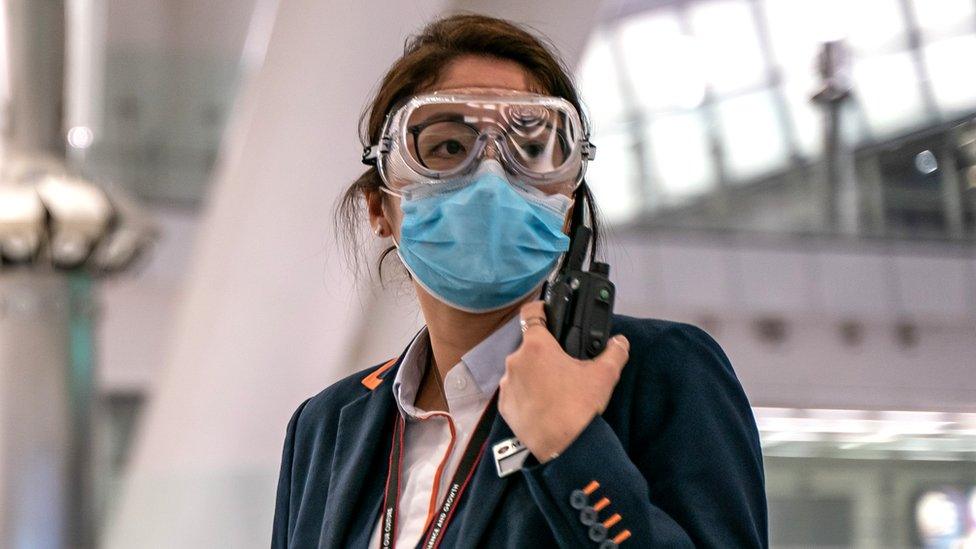
- Published30 January 2020
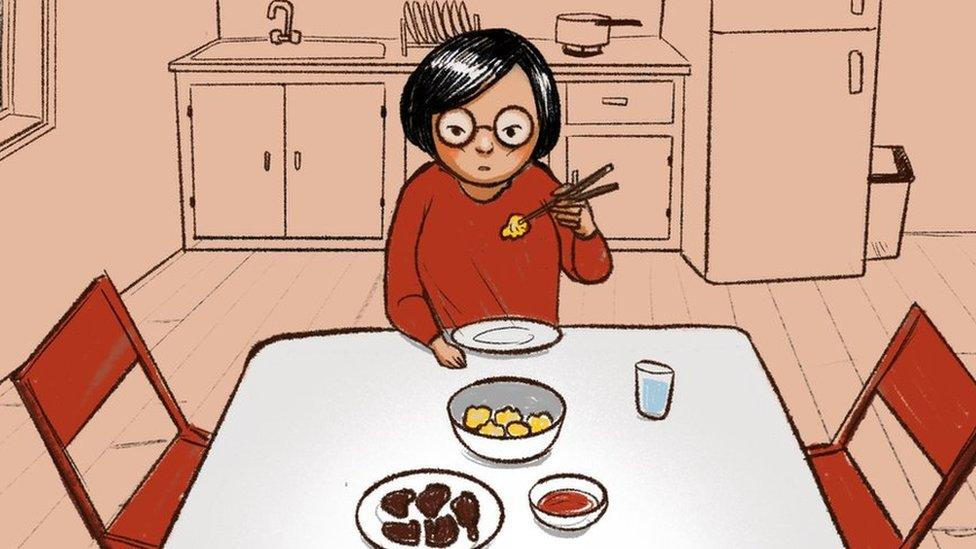
- Published30 January 2020
